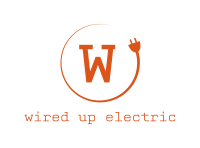If that’s the case, we’ve got some excellent news for you! There are EV charging incentives, Rebates, and Tax Credits when you purchase and install an EV charging station.
In over 40 states, there are regional incentives and tax credits for acquiring and installing business and household EV charging stations. Go electric! The right time is now.
A retroactive, federal tax credit for the purchase of environmentally friendly transportation, including EV charging stations, has been enacted by Congress. After December 31, 2021, the tax credit will be phased out.
If you want to take advantage of this credit on your federal return make your purchase and install before the end of 2021!
You can get a 30% federal tax credit if you buy and install an electric car charging station for as little as a thousand dollars for a home unit, ranging up to thirty thousand dollars for a commercial system.
This federal tax credit initially expired on December 31, 2017. However, it has been extended through December 31, 2021.
To qualify, your charging station must be bought and set up by the end of 2021. Give us a call at 443-600-9300 if you’re interested in taking advantage of the tax credit. We can show you how.
Did You Have a Charging Station Installed in 2017 or 2018?
You still qualify for the tax credit, so don’t panic! The tax credit is retroactive, back to 2017 installs, and doesn’t expire until the end of 2021.
If your installation took place before 2019, you would need to modify your return to receive your credit.
Other EV Charging incentives for businesses are available.
If you’ve lost your receipt but bought your charging station from Wired Up Electric LLC, shoot us an email or contact us at 443-600-9300, and we’ll give you a copy of your invoice.
The federal tax credit is available for all charging stations installed by Wired Up Electric. We want all of our eligible customers to receive this tax break!
All details can be found on the US Department of Energy’s website.
See IRS Form 8911, which is accessible on the IRS website for Forms and Publications, for additional information on claiming the credit. (See Public Law numbers 116-94, 115-123, 114-113, 26 US Code numbers 30C and 38, and Notice from the IRS 2007-43(P) for further info.)
Alternative Fuel Infrastructure: About the Tax Credit
Point of Contact
US Internal Revenue Service
Phone: (800) 829-1040
http://www.irs.gov/
Installed through December 31, 2021, fueling equipment for propane, natural gas, electricity, liquified hydrogen, E85, or diesel fuel mixes that contain at least 20% biodiesel will be eligible for a 30% tax credit of up to $30,000.
For natural gas, liquefied hydrogen, propane, E85, Electricity, or diesel fuel mixes that contain at least 20% biodiesel will be eligible for a tax credit that runs up to 30% of the cost of a price up to $30,000. Fees for permits and inspections are not reimbursed costs.
The credit can be applied to each location by the owners of the fueling station. They must install qualifying equipment at several locations.
In addition, purchasers of qualifying home fueling equipment before December 31, 2021, may be eligible for a tax credit up to a total of $1000.
As defined by the IRS, unused general business tax credits can be carried back one year and forward for a total of twenty years. (See Public Law 116-260, 116-94, 115-123, 114-113, 26 US Code 30C and 38, and IRS Notice 2007-43(PDF) for further information.) Take a look at Form 8911 from the IRS – you can find it on the IRS Forms and Publications website for additional information on claiming the credit.
Assistance with a Project
The Vehicle Tech Office of the US EERE assists private businesses or public companies use alternative or renewable fuels, measures for idle reduction, improvements in fuel economy, and emerging technologies in transportation, including electric vehicles.
Coalitions for Clean Cities
Contact a Clean Cities Alliance in your region to help with initiatives incorporating alternative fuels and energy-efficient vehicle technology.
Several associations provide training and workshops on the most up-to-date technology and techniques. Coalitions also allow stakeholders to connect and learn from one another’s experiences and find possible project partners.
Assistance with technical issues
The Vehicle Technologies Office provides technical support and personalized consulting to assist stakeholders in overcoming barriers to alternative fuels and energy-efficient vehicle technologies.
Grants for Projects
Transportation projects may be eligible for financial aid. The Vehicle Technologies Office can provide information on financing sources and Federal Tax and state legislation and incentives, and Tax Credits.
